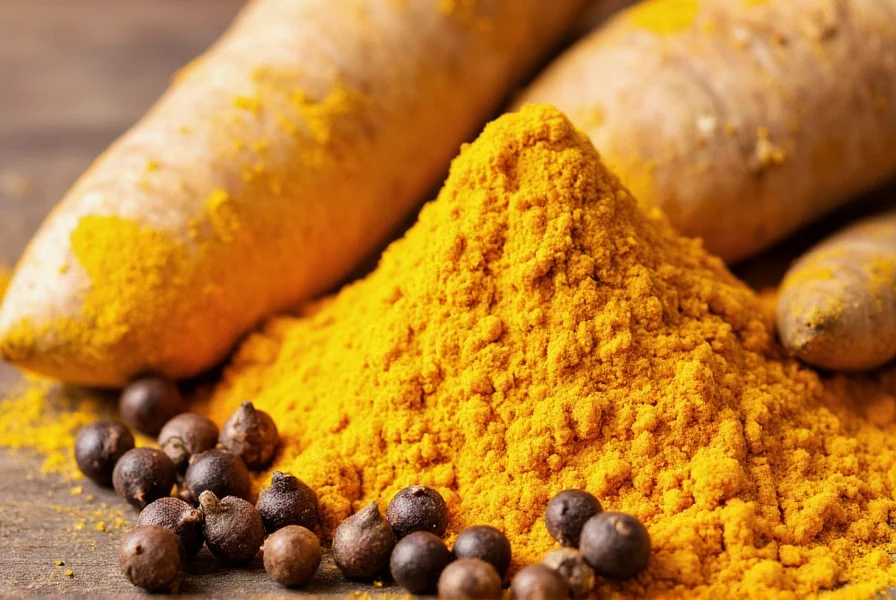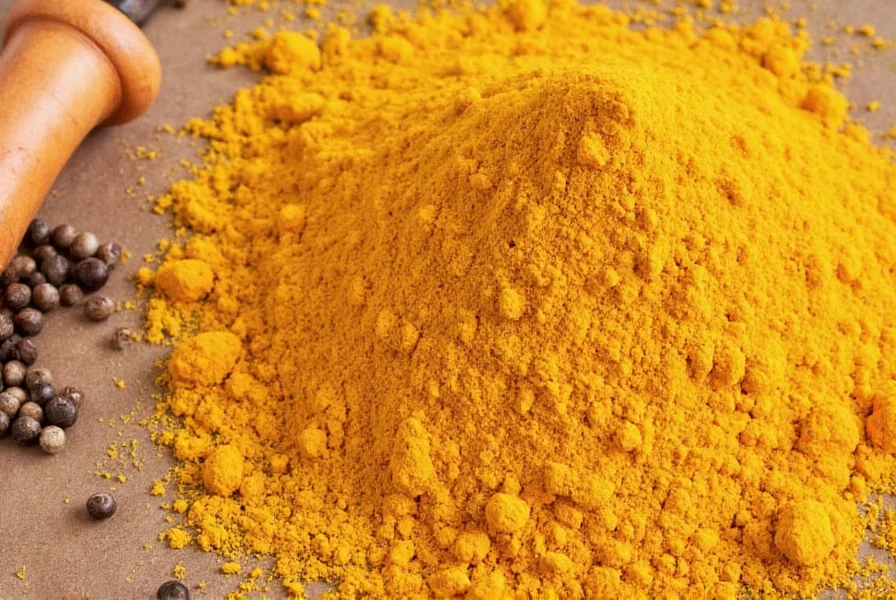For centuries, turmeric has been a staple in traditional medicine systems across Asia. Modern science is now validating many of these traditional uses while uncovering new potential applications for this vibrant yellow spice. Let's explore what turmeric is actually good for based on current scientific understanding.
The Science Behind Turmeric's Health Properties
Turmeric (Curcuma longa) contains curcuminoids, with curcumin being the most studied active compound. This polyphenol gives turmeric its distinctive yellow color and accounts for many of its biological effects. However, curcumin has low bioavailability on its own, which is why traditional preparations often combine turmeric with black pepper (containing piperine) or fats to enhance absorption.

Proven Health Benefits of Turmeric
Research has identified several evidence-supported benefits of turmeric consumption. These aren't miracle cures, but rather supportive roles in maintaining health and managing certain conditions.
1. Powerful Anti-Inflammatory Effects
Chronic inflammation contributes to numerous health conditions. Curcumin demonstrates significant anti-inflammatory properties by inhibiting multiple molecules involved in inflammation pathways. Studies show it can be as effective as some anti-inflammatory drugs, but without the same side effects.
| Condition | Research Findings | Recommended Dosage |
|---|---|---|
| Osteoarthritis | Multiple studies show reduced pain and improved function | 500mg curcumin 2-3x daily |
| Rheumatoid arthritis | Significant reduction in joint swelling and tenderness | 500mg curcumin 2x daily |
| Post-exercise muscle soreness | Reduced soreness and faster recovery in athletes | 400mg curcumin daily |
2. Antioxidant Protection
Curcumin neutralizes free radicals while also stimulating the body's own antioxidant enzymes. This dual action helps protect cells from oxidative damage, which plays a role in aging and many diseases. Research indicates turmeric supplementation can increase antioxidant enzyme activity by up to 70% in some studies.
3. Joint Health Support
For people with osteoarthritis, turmeric offers meaningful relief. A 2016 study published in the Journal of Medicinal Food found that curcumin provided significant improvement in pain and physical function compared to placebo. Many users report reduced stiffness and improved mobility within 4-8 weeks of consistent use.
4. Cognitive Function and Brain Health
Curcumin increases levels of brain-derived neurotrophic factor (BDNF), a growth hormone that functions in the brain. Low levels of BDNF are linked to depression and Alzheimer's disease. Population studies in India, where turmeric consumption is high, show lower rates of cognitive decline among older adults.
5. Heart Health Benefits
Turmeric improves endothelial function (the lining of blood vessels), which helps regulate blood pressure. It also reduces inflammation and oxidation, both key factors in heart disease. A 2017 review in Nutrients concluded that curcumin supplementation significantly improved several cardiovascular risk markers.

What Turmeric Research Doesn't Support
While turmeric shows promise for many applications, it's important to understand the limitations of current research:
- Cancer treatment: While laboratory studies show curcumin affects cancer cell growth, human trials haven't demonstrated it can treat cancer
- Weight loss miracle: Some studies show modest effects on metabolism, but turmeric alone won't cause significant weight loss
- Diabetes cure: May help with blood sugar control as a supplement to standard care, but not a replacement for diabetes medication
How to Use Turmeric Effectively
To maximize turmeric's benefits, consider these evidence-based usage tips:
- Enhance absorption: Always consume turmeric with black pepper (which contains piperine) or healthy fats
- Consistent dosing: Benefits accumulate over time - most studies show effects after 4-8 weeks of regular use
- Dietary incorporation: Add 1-2 teaspoons to soups, stews, or smoothies daily
- Supplement selection: Look for products containing 95% curcuminoids with absorption enhancers
Safety Considerations and Potential Side Effects
Turmeric is generally safe when consumed in food amounts. However, high-dose supplements may cause:
- Digestive upset in sensitive individuals
- Increased risk of bleeding for those on blood thinners
- Interactions with diabetes medications (may enhance effects)
- Gallbladder contractions (avoid if you have gallstones)
Pregnant women should avoid high-dose turmeric supplements, though culinary use is generally considered safe. Always consult your healthcare provider before starting any new supplement, especially if you have medical conditions or take medications.
Realistic Expectations for Turmeric Benefits
While turmeric offers several evidence-supported health benefits, it's not a miracle cure. The most realistic expectations include:
- Gradual reduction in joint discomfort for arthritis sufferers
- Modest improvements in inflammatory markers
- Support for overall wellness as part of a healthy lifestyle
- Enhanced antioxidant protection
These benefits typically develop over weeks to months of consistent use, not overnight. Turmeric works best as part of a comprehensive approach to health that includes proper nutrition, exercise, and other healthy lifestyle factors.
How much turmeric should I take daily for health benefits?
For general health benefits, 500-2,000 mg of turmeric extract containing 95% curcuminoids is commonly used in research. When using culinary turmeric, 1-3 grams (about 1/2 to 1 1/2 teaspoons) daily provides benefits. Always take turmeric with black pepper and healthy fats to enhance absorption.
How long does it take for turmeric to work for inflammation?
Most people notice reduced inflammation and pain relief within 4-8 weeks of consistent daily use. Some studies measuring inflammatory markers show improvements as early as 2 weeks, but noticeable symptom relief typically takes longer. Consistency is key, as curcumin needs to accumulate in your system to reach effective levels.
Can I get enough curcumin from cooking with turmeric?
Cooking with turmeric provides health benefits, but the curcumin content in regular turmeric powder is only about 3%. To get therapeutic doses studied in research, you would need to consume impractical amounts through food alone. For specific health concerns, a standardized curcumin supplement with absorption enhancers is more effective while culinary use supports general wellness.
What's the best way to absorb turmeric?
Turmeric absorption is dramatically improved when combined with black pepper (which contains piperine) and healthy fats. Piperine can increase curcumin absorption by up to 2,000%. Consuming turmeric with olive oil, coconut milk, or other fats also enhances bioavailability. Look for supplements that include these absorption enhancers for maximum benefit.
Are there any medications turmeric interacts with?
Turmeric may interact with blood thinners (like warfarin), diabetes medications, and drugs metabolized by certain liver enzymes. It can enhance the effects of these medications, potentially causing adverse effects. If you take any prescription medications, consult your healthcare provider before starting turmeric supplements to avoid potential interactions.











 浙公网安备
33010002000092号
浙公网安备
33010002000092号 浙B2-20120091-4
浙B2-20120091-4